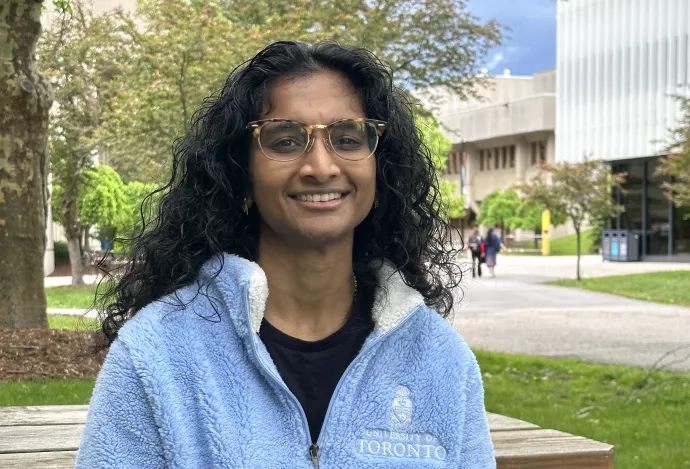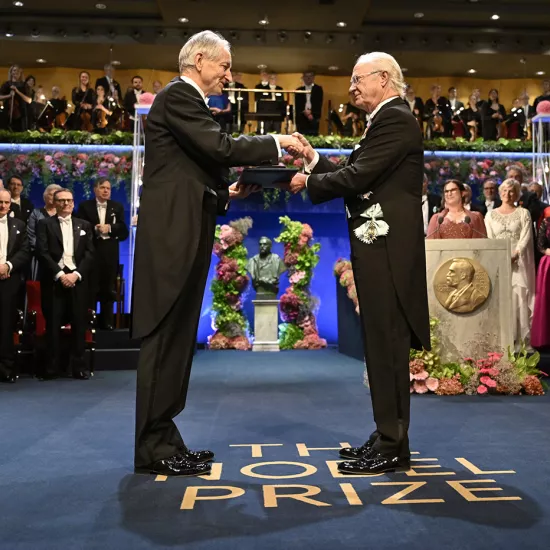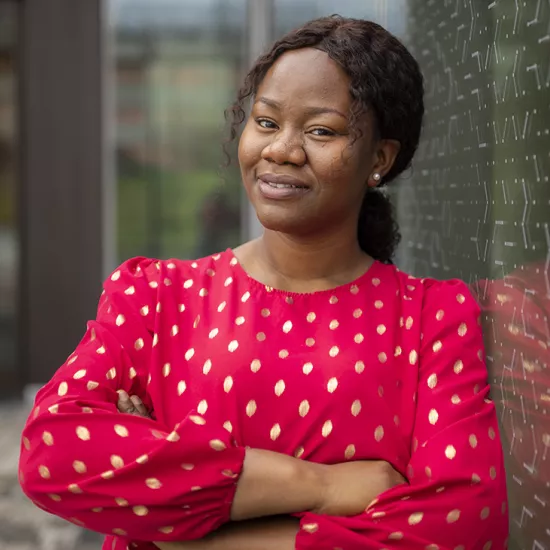'Perfect match': Grad fosters love for molecular biology and research in UTM labs

Meghana Malagi grew up with her family’s dream that she would become a doctor.
“My parents left India when I was six years old due to the potential conflict and differences in ideologies and ethical values the country was facing, and brought me and my newborn brother to Canada to give us a better education,” Malagi says.
Her younger brother currently attends the University of Toronto and this spring Malagi graduated from U of T Mississauga with an honours bachelor of science, focusing on molecular biology.
While her parents pushed her to look at medicine as a career, Malagi discovered that molecular biology, the study of how molecules interact in living organisms, held more interest.
“I learned that I liked to think about how the smallest things make the biggest impact,” she says.
For Malagi, the small action of attending professors' office hours had a significant impact on her academic journey. Watch the video below for more advice.
Through her training at UTM, Malagi discovered that she was more comfortable in a laboratory than in a hospital.
“When I discovered the job of a research scientist, I understood this is where I was meant to be,” she says.
The new grad plans to stay at U of T to pursue a PhD studying the α5GABAA receptor, a protein found in the brain.
“So now, my parents will get their dream of having a child that is a doctor,” she says. “Just not exactly how they imagined.”
Her interest in molecular biology was nurtured by a stint in the EpiLab, co-run by Brandon Walters, UTM associate professor of biology.
“He taught me all I know about molecular biology,” she says. “My brain works in zeros and ones and I found that molecular biology was a perfect match for me. The tests we do are done to give one answer or another. It is always yes or no. There is very rarely an in-between.”
Malagi completed her undergraduate thesis with Walters’ supervision and worked as his research assistant. Later her workload expanded as she added neuroscience projects for Loren Martin, associate professor in psychology at UTM and Canada Research Chair in Translational Pain Research.
Malagi was introduced to the Robert Gillespie Academic Skills Centre partway through her time at U of T and says the resources that RGASC provided helped her to develop healthy and effective learning habits. Eventually, this led to an employment opportunity and she spent three years as an RGASC program assistant for the Promoting Academic Skills for Success (PASS) program.
“I helped build skills in students who are academically at risk,” she says.
For her RGASC work, she was awarded the Gary and Brenda Mooney Award for contributing to student academic success.
Malagi also served as a peer in the international mentorship in academics and Canadian culture (IMACC) program, which helps international students navigate the social and academic challenges that they face when attending university in a new country, including learning about Canadian culture and practicing English.
“My goal was to help first-year students gain the skills, knowledge and confidence that help them become active members of their university and Canadian communities,” she says.
Malagi credits her spiritual journey and Christian faith for her academic success. “Finding a balance between religious obligations, classes, lab work and personal free time has been challenging,” she says. “But I believe in the last few years of my education I was able to build a solid schedule that has worked well for me.”



